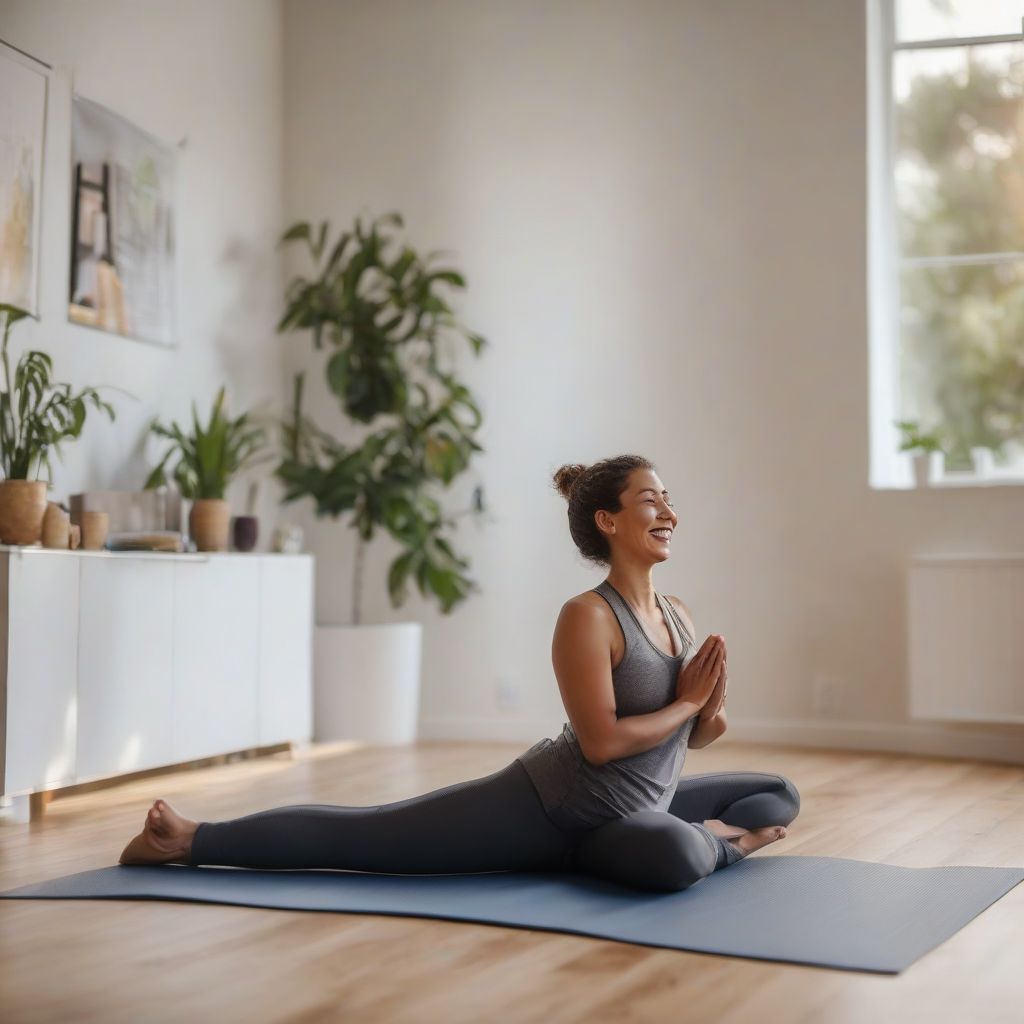We’ve all been there. Your to-do list is overflowing, deadlines loom, and the pressure is mounting. You feel stress creeping in, tightening its grip on your mind and body. But what if I told you there’s a natural, readily available antidote to stress hiding in plain sight? It doesn’t require a prescription or a pricey retreat – it’s exercise!
As a nutritionist and meal prep coach, I’ve witnessed firsthand the transformative effects of exercise on stress levels and overall health. And I’m not just talking about the physical benefits (though those are fantastic too!). Regular physical activity works wonders on your mental and emotional state, equipping you to face life’s challenges with more resilience and calm.
Decoding the Stress Response: Why Exercise is Your Secret Weapon
Let’s dive into the science behind this powerful connection. When you encounter a stressor, your body activates its “fight-or-flight” response, a cascade of hormones that prepare you to either confront the threat or flee to safety. This response, while helpful in genuinely dangerous situations, becomes problematic when it’s constantly triggered by everyday stressors.
This is where exercise steps in as a potent stress reliever. When you engage in physical activity:
- You burn off stress hormones: Exercise helps your body use up those excess stress hormones like adrenaline and cortisol, naturally reducing their levels.
- Endorphins take the stage: Exercise prompts your brain to release endorphins, natural mood boosters that act as powerful stress relievers and pain relievers. Think of them as your body’s very own “feel-good” chemicals.
- Mindfulness in motion: Engaging in exercise, whether it’s a brisk walk, a dance class, or lifting weights, requires focus and presence. This shift in attention away from your worries and anxieties creates a sense of mental clarity and calm, similar to meditation.
- Improved sleep quality: Regular physical activity can lead to better sleep patterns. And as we all know, a good night’s rest is crucial for stress management and overall well-being.
 Exercise for Stress Relief
Exercise for Stress Relief
Beyond Stress Relief: The Multifaceted Benefits of Exercise
The advantages of incorporating regular physical activity into your routine extend far beyond stress management. Let’s explore some of the additional benefits:
1. Enhanced Mood and Reduced Anxiety
Exercise has been shown to be as effective as medication in treating mild to moderate depression and anxiety. By increasing levels of serotonin and dopamine, neurotransmitters crucial for mood regulation, exercise acts as a natural mood booster and anxiety reducer.
2. Improved Cognitive Function
Want a sharper memory, improved focus, and increased creativity? Exercise is your answer! Physical activity enhances blood flow to the brain, promoting the growth of new brain cells and improving cognitive function.
3. Boosted Self-Esteem
Setting fitness goals and achieving them, no matter how small, can lead to a significant boost in self-esteem and self-confidence. Overcoming physical challenges spills over into other areas of your life, fostering a sense of empowerment and resilience.
Finding Your Perfect Fit: Choosing Activities You Enjoy
The key to reaping the stress-busting benefits of exercise is finding activities you genuinely enjoy. If you dread going to the gym, explore other options!
- Embrace the great outdoors: Go for a hike in nature, take a swim, bike ride, or play a game of frisbee in the park.
- Dance your worries away: Join a dance class, put on your favorite music and move freely in your living room, or try a Zumba session.
- Find strength in numbers: Group fitness classes provide a supportive and motivating environment. Explore options like yoga, Pilates, spin, or kickboxing.
- Make it a social affair: Involve friends or family in your fitness routine. Go for walks together, play sports, or try a new activity class.
 Choosing Exercise You Enjoy
Choosing Exercise You Enjoy
Making Exercise a Sustainable Habit
Consistency is key when it comes to experiencing the long-term benefits of exercise. Here are some tips for making physical activity a sustainable part of your life:
- Start small and gradually increase intensity: If you’re new to exercise, start with short, manageable sessions and gradually increase the duration and intensity as your fitness level improves.
- Schedule it in: Treat your workouts like important appointments. Block off time in your calendar and stick to your schedule as much as possible.
- Find an accountability buddy: Partner up with a friend or family member who shares your fitness goals. You can motivate each other, celebrate successes, and provide support on those days when motivation wanes.
- Listen to your body: Rest is just as important as exercise. Pay attention to your body’s signals and take rest days when needed.
Conclusion
Incorporating regular exercise into your life is a powerful and accessible way to manage stress, improve your mood, boost your overall health, and enhance your well-being. Find activities you enjoy, make them a consistent part of your routine, and watch as exercise transforms not just your body but also your mind and your ability to navigate the ups and downs of life with more resilience and joy.
Now, I’d love to hear from you! What are your favorite ways to de-stress through exercise? Share your thoughts and experiences in the comments below!
[amazon bestseller=”stress management”]
